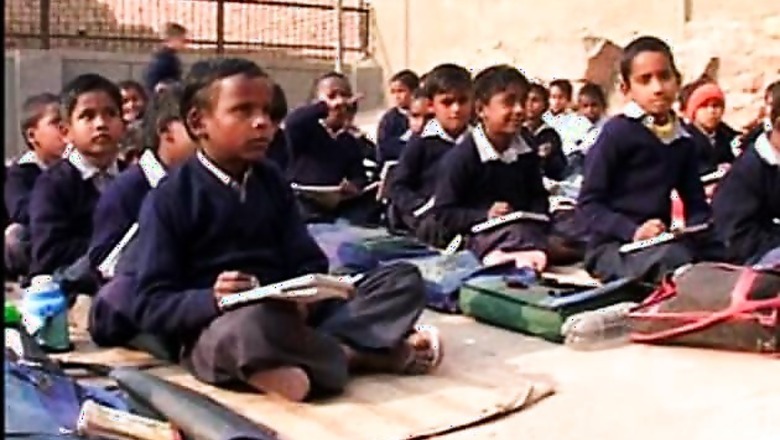
views
New Delhi: Five out of 10 school students of class V in rural India cannot solve simple arithmetic problems, says a nationwide survey on education. Putting a question mark on the quality of education imparted, the findings of the Annual Status of Education Report (ASAR) said while in 2010 more than half of class V students were able to read class II level texts, the proportion came down to 46.8 per cent in 2012.
"The decline in reading levels is more visible among children in government schools as compared to those in private schools. It has fallen from 50.7 per cent in 2010 to 41.7 per cent in 2010," the report prepared by Pratham, a voluntary organisation, said.
HRD Minister MM Pallam Raju, who released the report, expressed his "dismay" over some of the findings even as he dismissed suggestion that the decline was due to introduction of contentious and comprehensive evaluation (CCE) process in classrooms. "I will certainly not attribute it to the factor of CCE," he said after president of Pratham Education Foundation Madhav Chavan sought to highlight CCE for some of the negative indicators.
Raju also appeared to play down the findings of the report, saying it is a "dipstick survey". He said the ministry has its own NCERT survey conducted every three years though he acknowledged that the survey underscores that "it is important we all work together".
The report was based on a survey carried out in rural schools across 567 districts and covering about six lakh children in the age of 3-16. Highlighting the declining reading level, the report said that while seven out of 10 children (70.9 per cent) in class 5 were able to solve simple two-digit subtraction problem, it declined to five out of 10 (53.5 per cent) in 2012.
Barring Andhra Pradesh, Karnataka and Kerala, it said every major state has shown signs of a "substantial drop" in the arithmetic learning levels. Incidentally, 2012 was designated as the year of mathematics in India.
The report also sought to put a big question about the outcome of Right To Education (RTE) noting that though compliance with norms and standards specified by RTE has improved since 2010, "most children in schools today at least three grade levels behind where they should be". Learning deficit from primary school influence learning outcome at the secondary school level too, it said.
















Comments
0 comment